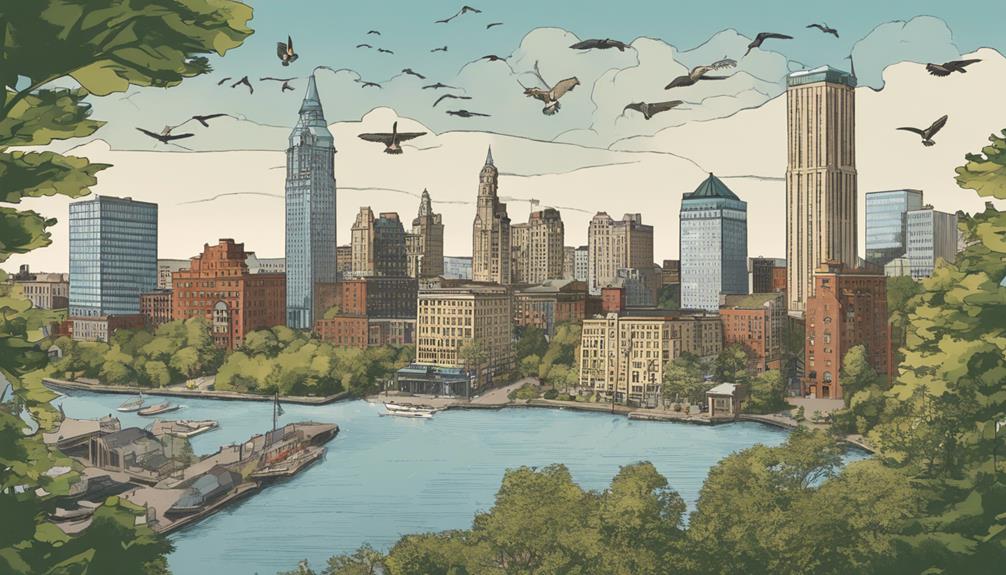You may not be cognizant that Providence offers some of the most rewarding environmental job positions in the field. From Environmental Scientists to Conservation Biologists and Sustainability Managers, the opportunities in this city are diverse and impactful. Delve into how these roles can lead you to contribute significantly to the preservation of the environment and the promotion of sustainable practices.
Environmental Scientist
An Environmental Scientist plays a crucial role in evaluating and mitigating the impact of human activities on the environment. Through extensive research and analysis, environmental scientists assess the effects of various pollutants, climate change, and other factors on ecosystems. They collect and analyze data to identify environmental problems, develop solutions, and recommend strategies for sustainable practices. In Providence, Environmental Scientists work closely with government agencies, private companies, and non-profit organizations to ensure compliance with environmental regulations and promote conservation efforts.
Additionally, Environmental Scientists conduct fieldwork to gather samples, monitor environmental conditions, and assess the health of ecosystems. They utilize advanced technologies such as GIS mapping and remote sensing to study environmental patterns and trends. By interpreting complex data sets, environmental scientists provide valuable insights into the state of the environment and help shape policies for environmental protection and resource management. Essentially, Environmental Scientists are at the forefront of addressing environmental challenges and nurturing a sustainable future for Providence and beyond.
Conservation Biologist
To effectively preserve biodiversity and protect endangered species, Conservation Biologists employ a multidisciplinary approach that integrates ecological principles with conservation strategies. This role involves conducting field research to evaluate the health of ecosystems, identify threats to wildlife populations, and develop conservation plans. Conservation Biologists often work for government agencies, non-profit organizations, or research institutions, collaborating with stakeholders to implement conservation projects.
Key responsibilities include monitoring and analyzing wildlife populations, studying habitat requirements, and evaluating the impact of human activities on the environment. Conservation Biologists play a vital role in developing and implementing strategies to lessen these impacts, such as habitat restoration, captive breeding programs, and community outreach initiatives.
To excel in this position, you need a strong background in biology, ecology, and environmental science. Proficiency in data analysis, GIS software, and field research techniques is essential. Excellent communication skills are crucial for presenting research findings, engaging with stakeholders, and advocating for conservation measures. Dedication to conservation efforts and a passion for protecting biodiversity are fundamental traits for a successful Conservation Biologist.
Sustainability Manager
When overseeing sustainability initiatives within an organization, a Sustainability Manager plays a pivotal role in integrating environmental considerations into business operations. This key position involves developing and implementing strategies to reduce the organization's carbon footprint, minimize waste, and promote eco-friendly practices. Sustainability Managers conduct thorough assessments of current processes to identify areas for improvement, such as energy efficiency improvements or sustainable sourcing options. By collaborating with various departments, they ensure that sustainability goals are aligned with the overall business objectives.
Furthermore, Sustainability Managers stay abreast of environmental regulations and industry trends to recommend best practices and maintain compliance. They may also engage with stakeholders, including employees, suppliers, and community members, to nurture a culture of sustainability and social responsibility. Monitoring and reporting on key performance indicators related to sustainability initiatives are essential aspects of the role, allowing for continuous improvement and transparent communication regarding environmental impact. Overall, Sustainability Managers play a vital role in driving positive environmental change within organizations.
Frequently Asked Questions
What Are the Typical Challenges Faced by Environmental Scientists in Providence?
In Providence, you often face challenges like maneuvering through complex regulatory frameworks, balancing stakeholder interests, and addressing conflicting scientific data. It's like trying to untangle a knot, requiring patience, precision, and perseverance.
How Does a Conservation Biologist Contribute to Local Biodiversity Conservation Efforts?
As a conservation biologist, you contribute to local biodiversity conservation efforts by conducting research, monitoring species populations, implementing habitat restoration projects, and collaborating with stakeholders to develop conservation plans that protect and improve ecosystems.
What Specific Skills Are Essential for a Sustainability Manager in Providence?
To excel as a sustainability manager in Providence, you must possess skills in data analysis, stakeholder engagement, project management, and knowledge of environmental regulations. Strong communication, problem-solving, and strategic planning abilities are crucial.
Are There Opportunities for Career Growth in the Field of Environmental Science?
Opportunities for career growth in environmental science are abundant. By networking, staying updated on industry trends, pursuing further education, and gaining hands-on experience, you can advance your career and make a meaningful impact in the field.
How Can Individuals Without a Formal Environmental Education Break Into These Job Positions?
To break into environmental job positions without formal education, focus on transferrable skills. According to a study by Payscale, 85% of employers prioritize skills over degrees. Showcase your relevant experience, passion, and willingness to learn.

